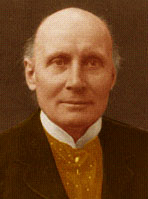
AnthonyFlood.com
Panentheism. Revisionism. Anarchocapitalism.

From Whose Togas I DangleAlfred North Whitehead
1861-1947
By Whitehead
Religion in the Making [1926]
The Aims of Education [1929]
The Function of Reason [1929]
God and the World [1929]
Prefatory Note to Susanne K. Langer, The Practice of Philosophy [1929]
Preface to William Morgan, “The Organization of a Story and a Tale” [1945]
Reflections on Man and Nature [Off-Site]
About Whitehead
Eric Dickson, Cassirer, Whitehead, and Bergson: Explaining the Development of the Symbol
James W. Felt, Whitehead’s Misconception of “Substance” in Aristotle
Anthony Flood, When Acton Met Whitehead?
William J. Garland, The Ultimacy of Creativity
Joseph M. Hallman, The Mistake of Thomas Aquinas and the Trinity of A. N. Whitehead
Joseph M. Hallman, The Necessity of the World in Thomas Aquinas and Alfred North Whitehead
Thomas Hosinski, Whitehead and a New Direction for Christian Philosophical Theology
Thomas Hosinski, The “Kingdom of Heaven” and the Development of Whitehead’s Idea of God
Thomas Hosinski, Whitehead and Existence as Participation in the Divine Life
Richard Elfyn Jones, A. N. Whitehead and Music: Real Time
Richard Elfyn Jones, A Whiteheadian Aesthetic and a Musical Paradigm
Richard Elfyn Jones, Some Platonic Implications of Whitehead’s Concept of God
D. L. C. Maclachlan, Whitehead’s Theory of Perception
A. E. Taylor, Some Thoughts on Process and Reality
Philosophy is the welding of imagination and common sense into a restraint upon specialists, and also into an enlargement of their imaginations. By providing the generic notions philosophy should make it easier to conceive the infinite variety of specific instances which rest unrealised in the womb of nature.
Process and Reality
Philosophy, in one of its functions, is the critic of cosmologies. It is its function to harmonise, re-fashion, and justify divergent intuitions as to the nature of things. It has to insist on the scrutiny of the ultimate ideas, and on the retention of the whole of the evidence in shaping our cosmological scheme. Its business is to render explicit, and—so far as may be—efficient, a process which otherwise is unconsciously performed without rational tests.
Science and the Modern World
Philosophy is not a mere collection of noble sentiments. A deluge of such sentiments does more harm than good. . . . It is not—or, at least, should not be—a fero-cious debate between irritable professors. It is a survey of possibilities and their comparison with actualities. In philosophy, the fact, the theory, the alternatives, and the ideal, are weighed together. Its gifts are insight and foresight, and a sense of the worth of life, in short, that sense of importance which nerves all civilised effort. Mankind can flourish in the lower stages of life with merely barbaric flashes of thought. But when civilisa-tion culminates, the absence of a co-ordinating philoso-phy of life, spread throughout the community, spells decadence, boredom, and the slackening of effort.
Adventures of Ideas
The philosophic attitude is a resolute attempt to enlarge the understanding of the scope of application of every notion which enters into our current thought. The philosophic attempt takes every word, and every phrase, in the verbal expression of thought, and asks, What does it mean? It refuses to be satisfied by the conventional presupposition that every sensible person knows the answer. As soon as you rest satisfied with primitive ideas, and with primitive propositions, you have ceased to be a philosopher.
Modes of Thought